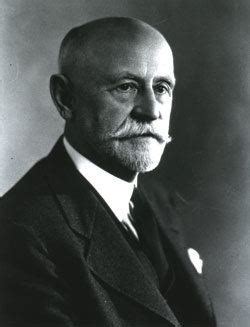A Quote by Dan Barker
There is no evidence for a god, no coherent definition of a god, no good argument for a god, good positive arguments against a god, no agreement among believers about the nature or moral principles of a god, and no need for a god. We can live happy, moral, productive lives without such belief, and we can do it better.
Related Quotes
You hear a lot about God these days: God, the beneficent; God, the all-great; God, the Almighty; God, the most powerful; God, the giver of life; God, the creator of death. I mean, we're hearing about God all the time, so we better learn how to deal with it. But if we know anything about God, God is arbitrary.
What is sin? It is the glory of God not honored. The holiness of God not reverenced. The greatness of God not admired. The power of God not praised. The truth of God not sought. The wisdom of God not esteemed. The beauty of God not treasured. The goodness of God not savored. The faithfulness of God not trusted. The commandments of God not obeyed. The justice of God not respected. The wrath of God not feared. The grace of God not cherished. The presence of God not prized. The person of God not loved. That is sin.
There are two gods. The god our teachers teach us about, and the God who teaches us. The god about whom people usually talk, and the God who talks to us. The god we learn to fear, and the God who speaks to us of mercy. The god who is somewhere up on high, and the God who is here in our daily lives. The god who demands punishment, and the God who forgives us our trespasses. The god who threatens us with the torments of Hell, and the God who shows us the true path.
There are two gods. A god who casts us off because of our sins, and a God who calls to us with His love.
Religion becomes a matter of belief, and belief acts as a limitation on the mind; and the mind then is never free. But it is only in freedom that you can find out what is true, what is God, not through any belief; because your belief projects what you think God ought to be, what you think ought to be true. If you believe God is love, God is good, God is this or that, your very belief prevents you from understanding what is God, what is true.
Maybe the growth of "God" signifies the existence of God. That is: if history naturally pushes people toward moral improvement, toward moral growth, and their God, as they conceive their God, grows accordingly, becoming morally richer, then maybe this growth is evidence of some higher purpose, and maybe - conceivably - the source of that purpose is worthy of the name divinity.
The main problem with those who deny the existence of God is not intellectual. It is not because of insufficient information, or that God's manifestation of himself in nature has been obscured. The atheists' problem is not that they cannot know God, rather it is they do not want to know him. Man's problem with the existence of God is not an intellectual problem; it is a moral problem." For the wrath of God is revealed from heaven against all ungodliness and unrighteousness of men - Rom. 1:18"
When we assume God to be a guiding principle well, sure enough, a god is usually characteristic of a certain system of thought or morality. For instance, take the Christian God, the summum bonum: God is love, love being the highest moral principle; and God is spirit, the spirit being the supreme idea of meaning. All our Christian moral concepts derive from such assumptions, and the supreme essence of all of them is what we call God.
Lukewarm people do not live by faith; their lives are structured so they never have to. They don't have to trust God if something unexpected happens- they have their savings account. They don't need God to help them- they have their retirement plan in place. They don't genuinely seek out what life God would have them live- they have life figured and mapped out. They don't depend on God on a daily basis- their refrigerators are full and, for the most part, they are in good health. The truth is, their lives wouldn't look much different if they suddenly stopped believing in God.
Loving God means rejoicing in God, being eager to think of and pray to God. It means being glad to be in God's presence and to be with God alone. It means not grieving God, but rejoicing in God simply because it is God who is involved, and because we are permitted to know and have God, and to speak with and live with God.
Some people have views of God that are so broad and flexible that it is inevitable that they will find God wherever they look for him. One hears it said that 'God is the ultimate' or 'God is our better nature' or 'God is the universe.' Of course, like any other word, the word 'God' can be given any meaning we like. If you want to say that 'God is energy,' then you can find God in a lump of coal.



































